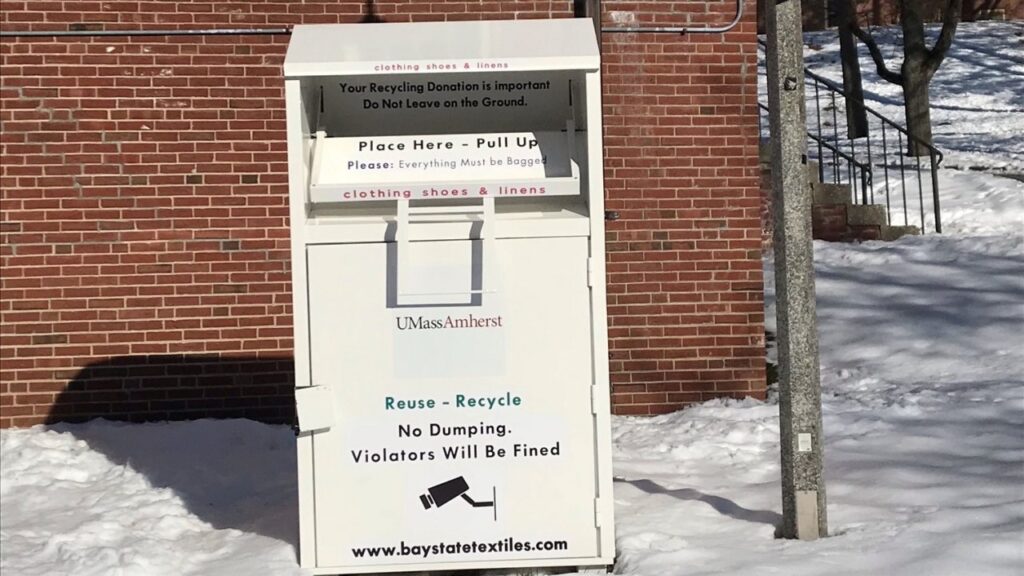When you go shopping for new clothes, what do you pay attention to before making a purchase? You may consider factors such as the latest fashion trends, price, and versatility–but how often do you think about the environmental impact of the clothing you wear?
It may be difficult to believe that something as simple as a cotton t-shirt can be so environmentally taxing–consuming 2,700 liters of water during production for a single shirt. With the rise and fall of new clothing trends and fast fashion companies, consumers are buying and discarding more clothing faster than ever. This increase in clothing consumption has amounted to a lot of textile waste and pollution; in fact, over the last 20 years, the volume of clothing that gets thrown away in the United States every year has doubled from 7 million to 14 million pounds.
Not only is it important to recognize the increased volume of discarded clothing in our landfills, but also to understand the effects of textile overconsumption on the environment–during both the beginning and end stages of a textile’s life. During production, textiles require a significant amount of energy, water, chemicals, and natural resources. Furthermore, over the 200+ years that it takes for textiles to decompose, they can leach greenhouse gasses and toxic chemicals into groundwater and soil, which negatively impacts the communities that depend on those natural resources.
In 2022, Massachusetts became the first state to ban people from throwing away their clothing in the garbage. Instead, the state encourages residents to recycle or donate their old clothing to disrupt the 11.2 million pounds of textile waste that heads into landfills every year across the United States.
At UMass, students can also recycle their used clothing, footwear, accessories, and linens at the Bay State Textiles collection boxes year-round. These bins are located in Southwest, in front of the Hampden Dining Commons, and in the Central Residential Area, in front of Brooks Hall. During the process of textile recycling, residents drop off their used clothing, which will either be resold or reused across different industries as wiping rags, insulation, and so forth.

For more information on textile recycling at UMass, visit: Baystate Textiles Collection Boxes | Sustainability | UMass Amherst
For more information on Bay State Textiles, visit: Frequently Asked Questions (FAQ) – Bay State Textiles
